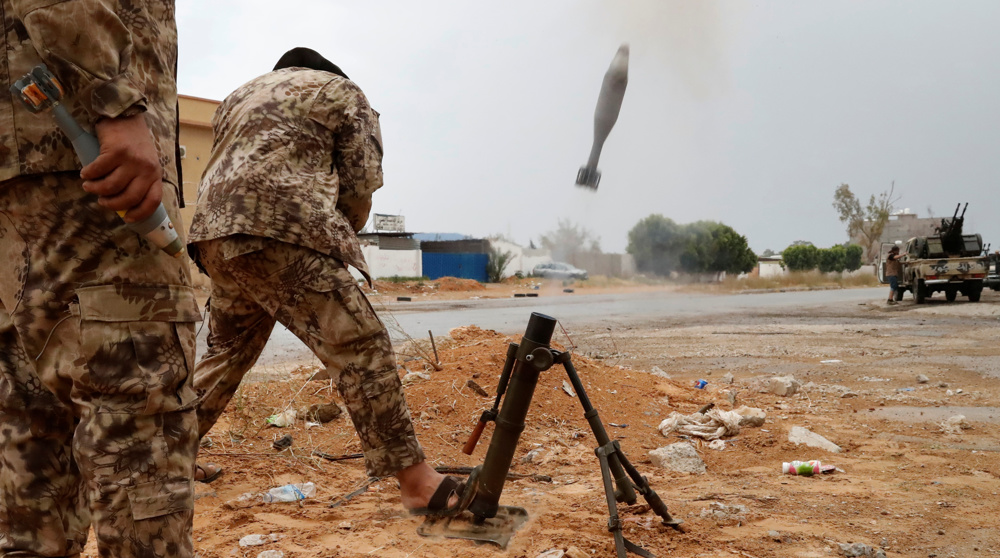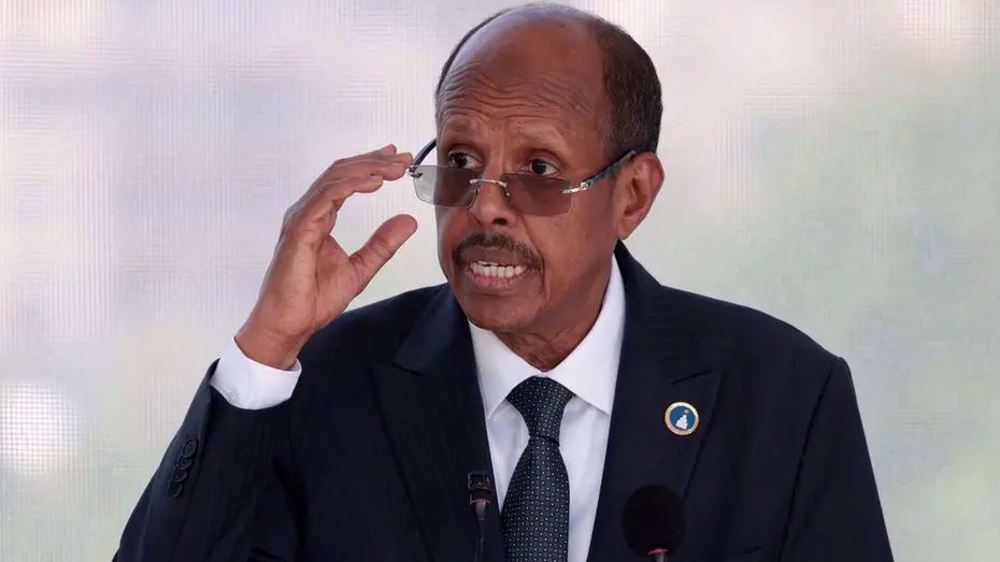Libya's UN-backed GNA rejects Haftar's truce, says does not trust his offer
Libya’s UN-backed Government of National Accord (GNA) has rejected a ceasefire unilaterally declared by the country's renegade General Khalifa Haftar a day earlier, saying it does not him.
In a statement on Thursday, the GNA insisted that it would continue in its "legitimate defense" and keep on attacking "any threat where it exists and putting an end to outlaw groups", referring to forces loyal to Haftar.
Since 2014, two rival seats of power have emerged in Libya, namely the internationally-recognized government of Prime Minister Fayez al-Sarraj, known as the GNA, and another group based in the eastern city of Tobruk, supported militarily by rebel forces, collectively known as the so-called Libyan National Army (LNA), under Haftar's command.
The military commander, who is primarily supported by the United Arab Emirates (UAE), Egypt, and Jordan, launched a deadly offensive to capture Tripoli, the seat of the GNA, in April last year.
Despite fierce fighting, he has so far failed to achieve his objective of ousting the GNA, and the offensive has stalled outside the city. Reports say that more than 1,000 have to date been killed in the violence.
Numerous international attempts to bring about peace between the two warring sides have failed.
On Monday, Haftar who controls swathes of eastern Libya claimed in a televised speech that his self-styled "army" had "accepted the will of the people and its mandate", pledging that his LNA rebel forces would take over control of the divided country.
The strongman, who has been accused of seeking to impose a new military dictatorship in war-ravaged Libya, also announced the "end" of a 2015 UN-mediated agreement that produced the GNA.
On Tuesday, the GNA in response accused Haftar of seeking a new coup in the North African country, saying his power grab bid "is a farce and the latest in a long series of coups d'etat" and that the renegade general had "turned his back on the parallel political institutions that backed him and designated him" head of a so-called army.
Russia warned Haftar against any "unilateral" actions and said it would not support his power grab move. The European Union and the High Council of State of Libya, for their parts, denounced the strongman's power claim.
On Wednesday, however, Haftar proposed a unilateral ceasefire in the Muslim holy month of Ramadan, which commenced on April 24, following international calls for a truce in the war-ravaged country.
However, reports said that the fighting did not come to an end, with explosions still heard from the center of Tripoli.
Since the onset of Haftar's offensive against the GNA, a number of ceasefire agreements between the two sides have been reached but frequently violated, with both sides accusing the other of violations.
Any "ceasefire needs to have international safeguards and mechanisms" to monitor its implementation and to document violations, the GNA said Thursday.
The strongman's truce proposal came after his rebel forces suffered a string of setbacks in recent weeks, with GNA forces pushing them out of two key coastal cities west of the capital.
Libya plunged into chaos in 2011, when a popular uprising and a NATO intervention led to the ouster, and later killing, of long-time dictator Muammar Gaddafi.
VIDEO | Press TV's news headlines
Gaza Nasser Hospital slams MSF’s ‘unsubstantiated’ claims as medical work suspended
Jordan condemns Israeli incursions at Al-Aqsa Mosque as 'flagrant violation'
Ex-Ukrainian energy minister arrested amid corruption probe while trying to flee
VIDEO | Israel using militias to deepen chaos in Gaza
Putin’s aide praises Iran’s ‘competitive’ technological achievements
VIDEO | Brussels exhibition exposes Western-backed genocide in Gaza
20,000 patients stuck as Gaza demands full operation of Rafah crossing












 This makes it easy to access the Press TV website
This makes it easy to access the Press TV website